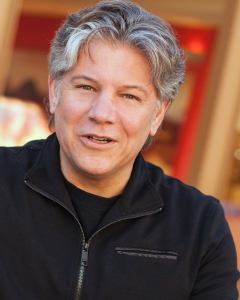
Randy Reinholz is an enrolled member of the Choctaw Nation, was born in St. Louis, Missouri and lived in several small towns throughout the Midwest of the United States: Missouri, North Dakota, and Texas. He graduated high school from Camdenton, Missouri and pursued a higher education afterwards. He received his Bachelor of Arts in Communication from William Jewell College in 1984 and Masters in Fine Arts in Acting from Cornell University in 1988. He has directed over fifty productions including The Rez Sisters, The Waiting Room, many productions of Shakespeare’s plays, and more. He is a tenured professor at San Diego State University in the Department of Theatre and is on faculty for the American Indian Studies Department. He was named the Director of the School of Theatre, Television, and Film in 2007 and in 2012 he was named the Director of Community Engagement and Innovative Programs for the College of Professional Studies and Fine Arts at SDSU.
I conducted an interview with Reinholz, where I was able to learn about his experiences as a Native and where his inspiration for Native Voices came from. Reinholz visited his grandparents at their home in Durant, Oklahoma, which is twenty-five miles away from the capital of the Choctaw Nation, as a child and in the 1980s during his television series. His grandmother was born in 1923, the youngest of thirteen children, and an enrolled member of the Choctaw Nation, while his grandfather was a non-enrolled Cherokee Indian. His grandparents were part of the federal government’s Indian relocation act during the 1950s, where they received forty acres of land and a mule. Randy’s grandmother did not speak the Choctaw language because she was not allowed to, so he does not know much about the Native language. She was connected to the land and told Randy stories about life and what she did as a child. Randy stated that his grandfather “liked to tell stories about the cultural traditions of the Choctaw he learned while living in Boswell.” He knows more about “Indian and Choctaw culture” and has come to realize that his grandmother’s stories was her way of him teaching him about their culture. Reinholz said, “Perhaps that is why stories are so important to me.” He was not enrolled at birth, but later on as a child when his grandmother went to the tribe and asked if her grandchildren could become enrolled; emphasizing how it was not always important to be enrolled until it became monetary.
Reinholz and his wife, Jean Bruce Scott, founded the theatre company, Native Voices, in 1993. The inspiration of Native Voices came to Reinholz when he went from being an actor to a college professor. When he was filling out the application to be a professor he checked the “Native American” box for his race/ethnicity; due to checking this box, the department wanted him to direct a play written by an Indian. From here he had to go out and find scripts written by Native people and then find these playwrights. While directing these types of plays, Reinholz asked himself a culturally sensitive question: can white kids play the Indian roles? The answer was no because Native identity played a huge role in how the character was developed and the experiences that the Native actors could use to relate to their characters. Thus, Native Voices was created based on the experiences Reinholz had as a professor and directing these Native written plays. His main goal was that all the Native roles in the plays were to be played by Native actors. Native people only write the plays that are submitted and performed by Native Voices. The reason for this specific requirement for scripts is to bring a broad spectrum of issues that artists are bringing to the theatre through the scripts: what are the voices in the community and what are people talking about in Indian Country?
In productions like, Off the Rails, Reinholz had to do a lot of research on the Pawnee tribe, create meaningful characters, and wanted to make sure to get the message of the play to the audience. Reinholz wanted to remind his audience of the genocide in America and the power dynamics of men of European descent and how they are keen on keeping their power, even if that means demeaning another human being. Each of the main characters has a name with significant meaning or are based off of a Native person: Alexie is based off the Native author, Sherman Alexie, General Gatt is based off of General Richard Henry Pratt, and James McDonald is the first Native lawyer. Reinholz took time to look into the history of the Pawnee people, especially during the time period of the play, 1886. He specifically looked into the traditional lifestyle of the Pawnee, the language, and the boarding school in Genoa. The language was one of the most difficult obstacles for Reinholz and how he could use the language. For example, he wanted to have Momaday curse in certain scenes, but the Pawnee do not use curse words in public so he had to change the dialogue. In the scene where Momaday and Caitlin sing to one another, he had Momaday sing the song in Lakota because he could not find the translation in Pawnee. The work put into the script before it is even completed is tedious work, but Reinholz made sure that his message would be delivered to his audience.
Works Cited
Figure 1.1. http://lastagetimes.com/author/randyreinholz/
Created by: Lora Paz